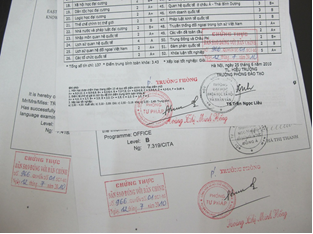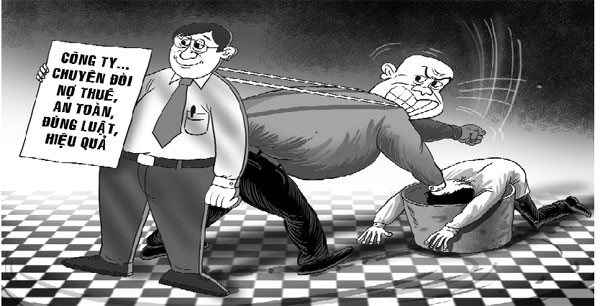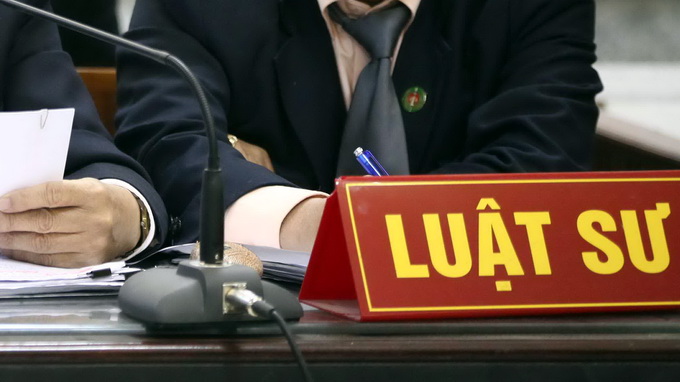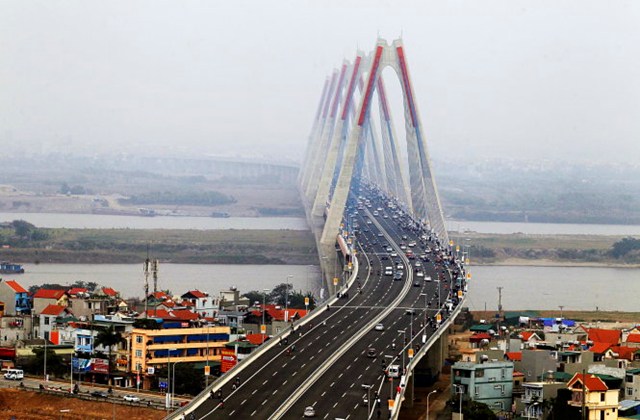13:35, 10/07/2024
Recently, the Supreme People's Court of Vietnam issued Official Dispatch 89/TANDTC-PC regarding the announcement of results from the online resolution of certain issues in adjudication, accompanied by 41 clarifications on Criminal, Civil, and Administrative matters of the Supreme People's Court for the year 2020.
 Details of 41 Clarifications on Criminal, Civil, and Administrative Issues by the Supreme People’s Court of Vietnam in 2020
Details of 41 Clarifications on Criminal, Civil, and Administrative Issues by the Supreme People’s Court of Vietnam in 2020
The 41 legal explanations on Criminal, Civil, Administrative matters of Supreme People’s Court of Vietnam in 2020 include:
| No. | ISSUE |
|---|---|
| Criminal | |
| 1 | A subject conducts the act of giving drugs to another person for use, but it is not found that there is anyone commanding, assigning, or directing the subject to give drugs to others for use. In this case, should the person who directly provided drugs to others be prosecuted for the crime of "Organizing illegal drug use"? |
| 2 | In the case where individuals invite each other to use illegal drugs, is it considered as luring and enticing others to use illegal drugs to be criminally prosecuted under Article 258 of the Criminal Code? |
| 3 | The circumstance "for 02 or more people" stipulated in point c, clause 2 Article 251 (crime of illegal drug trafficking) of the Criminal Code is understood as in one instance of committing the crime with 02 or more people or includes both committing the crime from 02 times or more but each time is with a different person? |
| 4 | In the case of seizing synthetic drugs (in tablet form) containing different types of drugs, and according to the provisions of the Criminal Code, these drugs are handled differently (e.g., the seized drug is a synthetic drug containing MDMA, Methamphetamine, and Methylphenidate, in which MDMA, Methamphetamine are stipulated in point c, clause 1 Article 249, Methylphenidate is a solid drug stipulated in point g, clause 1 Article 249), is it necessary to determine the content to separate the mass of each type of drug as the basis for criminal liability? |
| 5 | In the case of illegal drug trafficking, the subjects mixed solid drugs into another solid substance, then pressed them into tablets for sale. Through testing, it is determined that the seized substance is a drug but with a low drug content. In this case, should the criminal prosecution be based on the weight of the seized substance or should the drug content be determined to ascertain the weight of the drug in the seized substance? |
| 6 | In the case of seizing 02 or more drugs but they are stipulated in one point of the law (e.g., Heroin and MDMA), should the total drugs be aggregated and handled according to that point or handled according to the point "having 02 or more drugs with a total mass or volume of these substances equivalent to the mass or volume of the drug stipulated in one of the points from....this clause"? |
| 7 | In the case of catching a subject red-handed selling drugs and finding another amount of drugs hidden at the subject's home, where the subject claims to both use and sell, should this subject be prosecuted for the crime of illegal drug trafficking or the crime of illegal drug possession? |
| 8 | For the crime of smuggling, if the smuggled goods have been completely consumed and cannot be recovered, cannot be valued, is it correct for the prosecuting authority to use the conclusion of a competent authority to determine the value of the goods as a basis to consider the defendant's liability? |
| 9 | Clause 1 Article 264 (Crime of allowing an unqualified person to operate a motor vehicle) of the Criminal Code stipulates: "1. Anyone who allows a person known to have no driving license or under the influence of alcohol, with a blood or breath alcohol content exceeding the legal limit, or under the influence of drugs or other strong stimulants, to operate a motor vehicle causing harm to another person under any of the following circumstances shall be subject to a fine of from 10,000,000 VND to 50,000,000 VND or non-custodial reform for up to 3 years: a) Causing death; b) Causing bodily injury or harm to the health of one person with a bodily injury rate of 61% or more;...” So, who is the "another person" in this regulation defined as? Does it include the person given the motor vehicle to operate? |
| 10 | A person who has been convicted of the crime of trafficking in prohibited goods under Article 155 of the 1999 Criminal Code (the judgment took legal effect before July 1, 2015) and has not served the imprisonment term, is currently under a stay of execution of the sentence. Now that the 2015 Criminal Code (amended and supplemented in 2017) has specified explosives as prohibited goods, should this person be considered for exemption from the entire punishment? |
| 11 | If a person's criminal act occurred before 0:00 on January 1, 2018 (the date the 2015 Criminal Code took effect), but was only discovered, investigated, prosecuted, and adjudicated after that time, should the court, when considering a suspended sentence, base its decision on the guidance in Resolution No. 01/2013/NQ-HDTP or Resolution No. 02/2018/NQ-HDTP? |
| 12 | Resolution No. 02/2018/NQ-HDTP dated May 15, 2018, of the Council of Judges of the Supreme People's Court does not stipulate that a suspended sentence is not granted to those who are being prosecuted, investigated, or tried in another case, or those who have other offending acts that have been adjudicated in another case. Thus, if the defendant meets the conditions for a suspended sentence but the file shows that the defendant has other offending acts that have been adjudicated or is being prosecuted, investigated, or tried in another case, is the defendant entitled to a suspended sentence? |
| 13 | In a gambling case, does the court base on the total amount of money seized or the amount each defendant used for gambling to consider criminal liability and decide the punishment for each defendant? |
| 14 | Due to pre-existing conflicts, a group of subjects prepared weapons such as claw hammers, butcher knives, swords, and iron pipes to use with the intent of causing injury or harm to others. While on the way to commit the crime, they were discovered and promptly prevented. In this case, should the group of subjects be criminally prosecuted for the crime of intentional injury? |
| 15 | Pursuant to Official Dispatch No. 170/TANDTC-PC dated August 1, 2018, of the Supreme People's Court on implementing the provisions of the Criminal Code and Resolution No. 01/2018/NQ-HDTP dated April 24, 2018, on conditional early release: "...the time of the legal effect of the Decision on conditional early release is 15 days after signing and issuing, and the time to start counting the probation period is from the date the Decision on conditional early release takes legal effect." So, how is the first day within the 15-day period to determine the legal effect of the Decision on conditional early release calculated? |
| Criminal Procedure | |
| 1 | In the case where the defendant is prosecuted for one or some crimes under the jurisdiction of the district People's Court, but when handling the case, it is found that the defendant has been sentenced to life imprisonment or the death penalty, how should the first-instance trial jurisdiction of the criminal case be handled? |
| 2 | Based on Clause 3 Article 298 of the Criminal Procedure Code on the limits of adjudication: In the case where it is deemed necessary to try the defendant for a heavier crime than the one prosecuted by the Prosecutor's Office, the court returns the file for the Prosecutor's Office to re-prosecute and clearly informs the defendant or their legal representative and defense attorney, if the Prosecutor's Office maintains the original charge, can the court try the defendant for the heavier crime? However, does this provision apply to different crimes with different objects? For example: In a criminal case with 02 defendants, defendant A is prosecuted by the Prosecutor's Office for the crime: "Concealing a crime," and defendant B is prosecuted for the crime: "Murder." The court finds that defendant A shows signs of committing the crime: "Murder" as an accomplice. The court returns the file for the Prosecutor's Office to re-prosecute, but the Prosecutor's Office does not comply. So, what crime should the court try defendant A for? |
| 3 | In a criminal case where the accused or defendant is serving a prison sentence for a previous case or is serving a decision on administrative measures to bring them to a compulsory detoxification center, when extracting the accused or defendant to serve the trial, does the court have to issue a Detention Order to extract the defendant to the trial? (Joint Circular No. 04/2013/TTLT-BCA-BQP-TANDTC-VKSNDTC dated May 30, 2013, and Joint Circular No. 01/2018/TTLT-BCA-BQP-TANDTC-VKSNDTC dated January 23, 2018, do not specify this case). |
| 4 | If the Prosecutor's Office withdraws part of the prosecution at trial, must the judgment consider and evaluate the validity of the Prosecutor's Office's withdrawal of the prosecution? |
| 5 | If after the court pronounces the verdict but the verdict has not taken legal effect, and there is no enforcement decision, can a person on a suspended sentence who is absent from the residence or violates the residence's regulations and rules be considered as violating obligations under Article 87 of the Law on Execution of Criminal Judgments? |
| 6 | If a person decided by the court to postpone serving a prison sentence (raising a child under 36 months old or pregnant) but voluntarily requests to serve the sentence before the postponement period ends, is it accepted by the competent authority? |
| Administrative Procedure | |
| 1 | Does the certification of the commune-level People's Committee fall under the subject of administrative lawsuits? |
| 2 | Is the approval decision of the Chairman of the district People's Committee on contractor selection results an administrative decision subject to lawsuits? |
| 3 | During the preparation for the first-instance trial, if the plaintiff is lawfully summoned twice to the court for testimony but still absent without a justifiable reason and without a written request for trial in absentia, can the court suspend the case? |
| 4 | If the complaint period has expired, but the complainant files a complaint against the administrative decision with the competent authority with no justifiable reason for the delay, and due to repeated complaints, the competent authority issues a document (decision, Official Dispatch, notice, etc.) stating that the administrative decision has been issued in accordance with the law, the complainant disagrees and files a lawsuit against this document. Is this document considered an administrative decision subject to administrative lawsuits? If it is considered a subject of administrative lawsuits, does the resolution of the case need to consider the legality of the initial administrative decision? |
| 5 | Under the provisions of Clauses 2 and 3, Article 196 of the Law on Administrative Proceedings: "2. Within 07 days from the date of pronouncing the judgment, the court must issue and send the judgment to the involved parties and the same-level Prosecutor's Office. 3. Within 30 days from the expiration of the appeal period, if there is no appeal or protest, the court issues and sends the legally effective judgment to the involved parties, the same-level Prosecutor's Office, the same-level civil judgment enforcement office, and the superior agency of the defendant." According to this provision, does the court send the judgment twice (one legally ineffective judgment and one legally effective judgment) to the same-level Prosecutor's Office, is it correct? |
| 6 | In a case where the family's land is secretly registered for land use rights certification by Mr. A (a member of the family), after which Mr. A transfers the land to Mr. B, who is then issued a land use rights certificate, and subsequently transfers it to Mr. C, who is also issued a land use rights certificate. The family members discover the fraudulent registration for the land use rights certificate and file a lawsuit requesting the court to annul Mr. C's land use rights certificate. In this case, should the court annul only Mr. C's land use rights certificate or annul the certificates issued to Mr. A, Mr. B as well? |
| 7 | If the administrative decision's filing period expires, but the complaint resolution decision's period is still valid, but the complainant only sues the administrative decision without suing the complaint resolution decision, should the court still resolve the case or suspend it due to the expired filing period? |
| 8 | Is a document from the provincial-level People's Committee Office notifying the conclusion of the provincial-level People's Committee leader directing the district People's Committee to revoke a family's land (due to improper land allocation) subject to administrative lawsuits? |
| Civil | |
| 1 | In a case confirming parentage, where the court has issued an expert assessment decision but the defendant does not cooperate, leading to the inability to conduct DNA testing, should the court temporarily suspend the case or proceed with the general procedure? |
| 2 | After the suspension period of the trial ends, the trial panel issues a decision to temporarily suspend the case under Clause 2 Article 259 of the Civil Procedure Code. When the reason for the temporary suspension no longer exists, should the court issue a notification to resume the trial or issue a decision to continue the civil case resolution? |
| 3 | During the resolution of the case, does the judge have to explain to the involved parties the right to request the court to apply the statute of limitations? (Many cases lack the necessary explanation leading to the involved parties losing the right to request the application of the statute of limitations before the court pronounces the first-instance verdict). |
| 4 | If an involved party is absent from the trial but has an authorized representative present, does the appeal deadline for the involved party start from the trial date or the date they receive the judgment? |
| 5 | After divorce, if the parents live abroad and file a lawsuit concerning the change of the person directly raising the child after divorce, with the child living in Vietnam, does it fall under the jurisdiction of Vietnamese courts? |
| 6 | Since the Civil Procedure Code does not stipulate the principle of continuous adjudication, is it permissible to change the members of the trial panel during deliberation or recess the trial for objective reasons? |
| 7 | In disputes concerning land boundaries (e.g., overlapping certification), if one of the parties has been issued a first-time land use rights certificate, do the district-level People's Courts handle the request to annul the land use rights certificate? According to Official Dispatch No. 64/TANDTC-PC dated April 3, 2019, of the Supreme People's Court, such cases fall under the jurisdiction of the provincial-level People's Courts. If so, many cases from the district-level People's Courts will be transferred to the provincial-level People's Courts, leading to overload. In such cases, when the court determines the land area and boundary and requests the People's Committee to adjust the land area in accordance with the actual use without annulling the land use rights certificate, does the district-level People's Court resolution comply with Official Dispatch No. 64/TANDTC-PC? |
| 8 | During the resolution of the case, the plaintiff requested the Court to apply emergency asset freeze measures on the debtor's (defendant's) assets to ensure the enforcement of the judgment. The assets requested for the freeze are a house and land that have been granted a certificate of land use rights, ownership of residential houses, and other assets attached to the land for the defendant. The defendant has signed a contract to transfer the house and land to a third party, and the contract has been notarized but not yet registered in the land registry. In this case, can the Court issue a decision to apply asset freeze measures? |
| 9 | If the Court directly serves the procedural document for the first time and the involved party deliberately refuses to receive it, is the Court required to proceed with public posting in accordance with the Civil Procedure Code? |
| 10 | In cases involving the division of common property or inheritance, is the person receiving a portion of the property for their efforts in preserving and enhancing the land use rights required to pay court fees? |
| 11 | According to the provisions of the Civil Procedure Code and Resolution No. 326/2016/UBTVQH, disputes over the determination of parentage for a child are considered family and marriage disputes. So, when resolving the case, is it the plaintiff or the defendant who has to bear the court fees? |
| 12 | An elderly person does not submit a request to be exempt from advancing court fees or court charges because they are not knowledgeable or have not been explained this right. If the Court still requires them to pay the court fees (without exemption), can this be considered a violation? |
Nguyen Trinh
- Key word:
- Criminal
- Civil
- Supreme People’s Court
- Vietnam
 Article table of contents
Article table of contents










.Medium.png)
.Medium.png)
.Medium.png)
.Medium.png)
